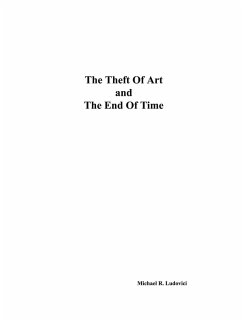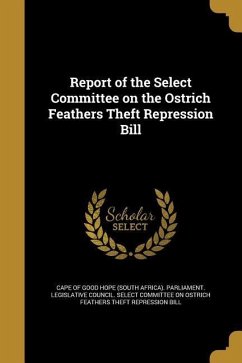
Theft of World History
Versandkostenfrei!
Nicht lieferbar
The "theft of history" referred to in the title refers to the Western takeover of history. By this I mean a way of conceptualizing and presenting the past in which one starts with events that occurred on a provincial scale in Europe most often Western Europe and imposes them on the rest of the world. The European continent claims the invention of a series of extremely important institutions such as "democracy," the "market capitalism", freedom, individualism. But these are institutions that are found in a large number of other human societies. The same is true of certain feelings such as love ...
The "theft of history" referred to in the title refers to the Western takeover of history. By this I mean a way of conceptualizing and presenting the past in which one starts with events that occurred on a provincial scale in Europe most often Western Europe and imposes them on the rest of the world. The European continent claims the invention of a series of extremely important institutions such as "democracy," the "market capitalism", freedom, individualism. But these are institutions that are found in a large number of other human societies. The same is true of certain feelings such as love - courtly love, in particular - whose appearance is often limited to 12th-century Europe, and which is considered a product of the modernization of the West (in the form it takes with the urban family, for example). This view is clearly evident in what the eminent historian Trevor-Roper writes in his book, The Rise of Christian Europe. Noting the extraordinary achievement of Europe since the Renaissance (contrary to some comparativists, who push back the beginning of European predominance to the 19th century), Trevor-Roper considers that this achievement is the work of Europe alone. European predominance may be only temporary, but, according to him: The historian's task, he adds, however, is to "put [his philosophy] to the test by travelling abroad, even in hostile lands." In my view, Trevor-Roper must not have travelled much outside Europe, either in theory or in practice. Moreover, while tracing the first concrete manifestations of European hegemony to the Renaissance, he is essentialist in attributing it to the fact that Christianity "carried within itself the promise of a new and immense vitality" Trevor-Roper may be considered an extreme case, but I will show that many more moderate versions of a similar conception clutter the history of both continents, as well as that of the entire world. Several years spent among the "tribes" of Africa or in the simple kingdom of Ghana have led me to question many of the "inventions" to which Europeans lay claim, whether in terms of forms of government(democracy), kinship ties (the nuclear family), methods of exchange (the market) or forms of justice, even though these "inventions" are found in many other societies, at least in their embryonic state. History gives form to these claims in both scholarly and popular discourse. It is certainly true that recent eras have seen great European achievements, and we must do them justice. But these are largely indebted to other urban cultures, such as the Chinese. Indeed, we now know that, economically and intellectually speaking, only a relatively recent and temporary gap separates the West from the East. However, in the writings of many European historians, the trajectory of the Asian continent and of everything that is not Europe is considered to have been very different (characterized, in the most extreme conception, by "Asian despotism"); this is a vision that goes against what I have learned from other cultures and from primitive archaeology (before and after writing). One of the aims of this book is to confront these apparent contradictions by examining anew the way European historians have viewed the fundamental transformations of societies since the Bronze Age, or approximately since 3000 BC. It is with this in mind that I have undertaken to read or reread, among others, the works of historians whose work I admire: Fernand Braudel, Perry Anderson, Peter Laslett and Moses Finley.








